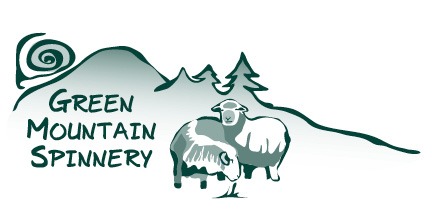Today is International Co-op Day!
You probably already know that Green Mountain Spinnery is a worker-owned cooperative. Of the dozen folks who work here, currently five are worker-owners who collectively make decisions to manage the Mill. Everyone who here is an integral part of the operation and are encouraged to share individual perspectives, ensuring that all of our voices are heard and considered.

What you may not know is that members of the Spinnery Team are also participating members of other Co-ops as well. It has been part of the Spinnery’s mission from the co-operative’s establishment, that our Mill be actively engaged in the larger co-op movement to help create the positive change we want to see in the world.
GMS is a member and serves on the board of the Valley Alliance of Worker Cooperatives. This is an organization that is “dedicated to building a sustainable local economy by facilitating the support, development and promotion of worker co-operatives in Western Massachusetts and Southern Vermont. VAWC is a ‘secondary co-operative’ owned and operated by our Member Co-operatives.”
On the national level, we are part of the U.S.Federation of Worker Cooperatives. This federation is the national grassroots membership organization for worker cooperatives. Our mission is to build a thriving cooperative movement of stable, empowering jobs through worker-ownership. We advance worker-owned, -managed, and -governed workplaces through cooperative education, advocacy and development. This association includes more than 200 business and organizational members representing 6,000 workers across the country.
This week on our Instagram Feed, we’ve been sharing the principles that have acted as guidelines by which cooperatives put their values into practice. We’d like to gather them here for your reference.
1. Voluntary and Open Membership
Cooperatives are voluntary organizations, open to all persons able to use their services and willing to accept the responsibilities of membership, without gender, social, racial, political or religious discrimination.
2. Democratic Member Control
Cooperatives are democratic organisations controlled by their members, who actively participate in setting their policies and making decisions. People serving as elected representatives are accountable to the membership. In primary cooperatives members have equal voting rights (one member, one vote) and cooperatives at other levels are also organized in a democratic manner.
3. Member Economic Participation
Members contribute equitably to, and democratically control, the capital of their cooperative. At least part of that capital is usually the common property of the cooperative. Members usually receive limited compensation, if any, on capital subscribed as a condition of membership. Members allocate surpluses for any or all of the following purposes: developing their cooperative, possibly by setting up reserves, part of which at least would be indivisible; benefiting members in proportion to their transactions with the cooperative; and supporting other activities approved by the membership.
4. Autonomy and Independence
Cooperatives are autonomous, self-help organisations controlled by their members. If they enter into agreements with other organisations, including governments, or raise capital from external sources, they do so on terms that ensure democratic control by their members and maintain their cooperative autonomy.
5. Education, Training, and Information
Cooperatives provide education and training for their members, elected representatives, managers, and employees so they can contribute effectively to the development of their co-operatives. They inform the general public – particularly young people and opinion leaders – about the nature and benefits of co-operation.
6. Cooperation among Cooperatives
Cooperatives serve their members most effectively and strengthen the cooperative movement by working together through local, national, regional and international structures.
7. Concern for Community
Cooperatives work for the sustainable development of their communities through policies approved by their members.
Here at the Spinnery, our sense of community responsibility extends to our part in working towards a more sustainable production process that will have a minimal impact on the environment. We are very conscious of minimizing our carbon footprint. For years we have been recycling our water, by filtering and reusing the water flushed through our scouring department. We also diminish our wool waste by offering waste bags of wool to local visitors who have used it for crafting and insulation. The wool that is unsuitable for this use is composted and has enriched the soil of our community garden plot behind the Mill. We are also working towards an exclusive use of vegetable oil in production, moving away from the less expensive petroleum alternative in an effort to align all parts of our production with our climate goals.
We will continue to evolve as an organization to meet the needs of our employees, our local community, the international fiber community and the global environment. We hope that you enjoy this holiday weekend and join us in celebrating the work that is being done by cooperatives all over the world to improve the conditions we share.
